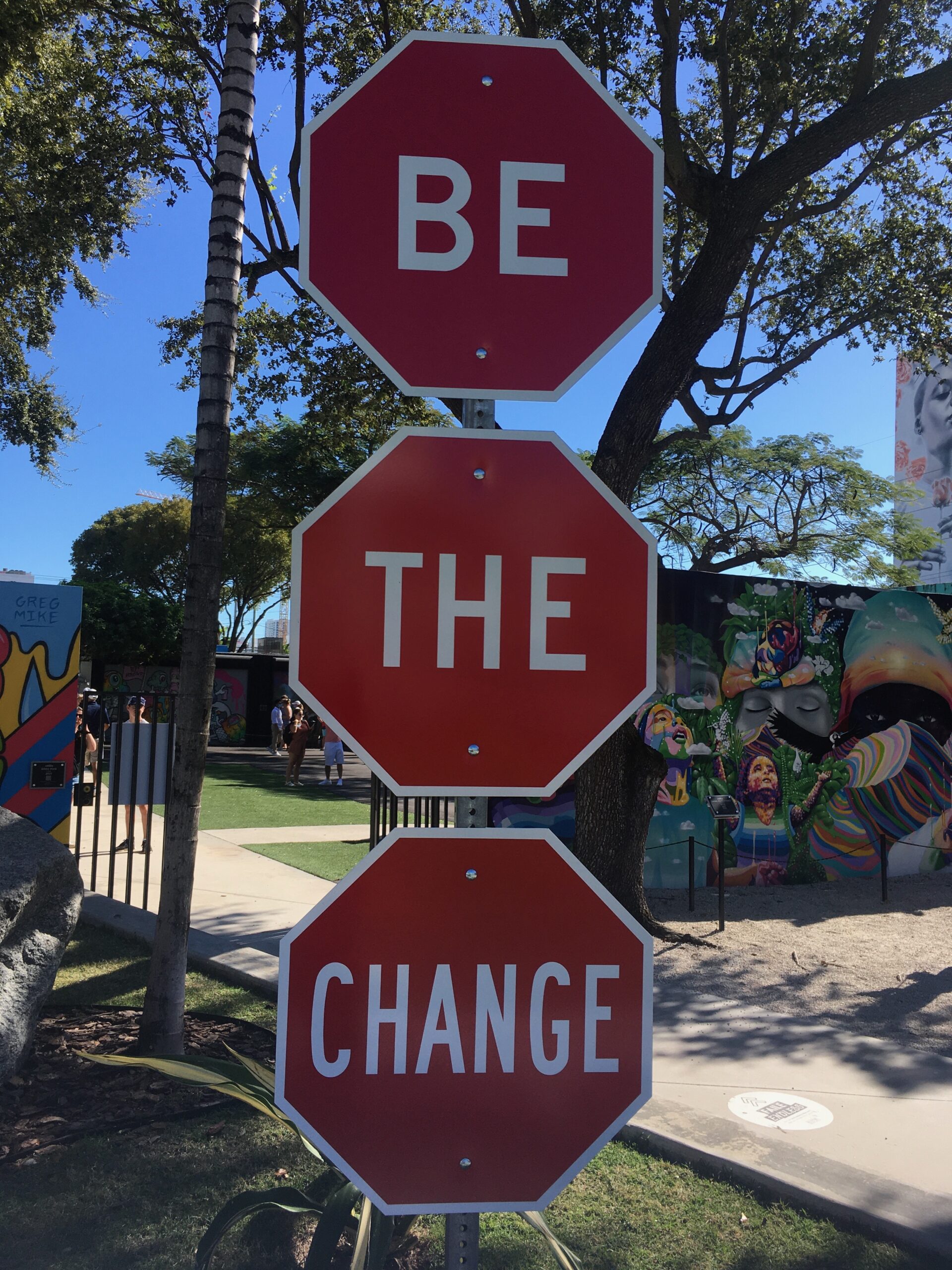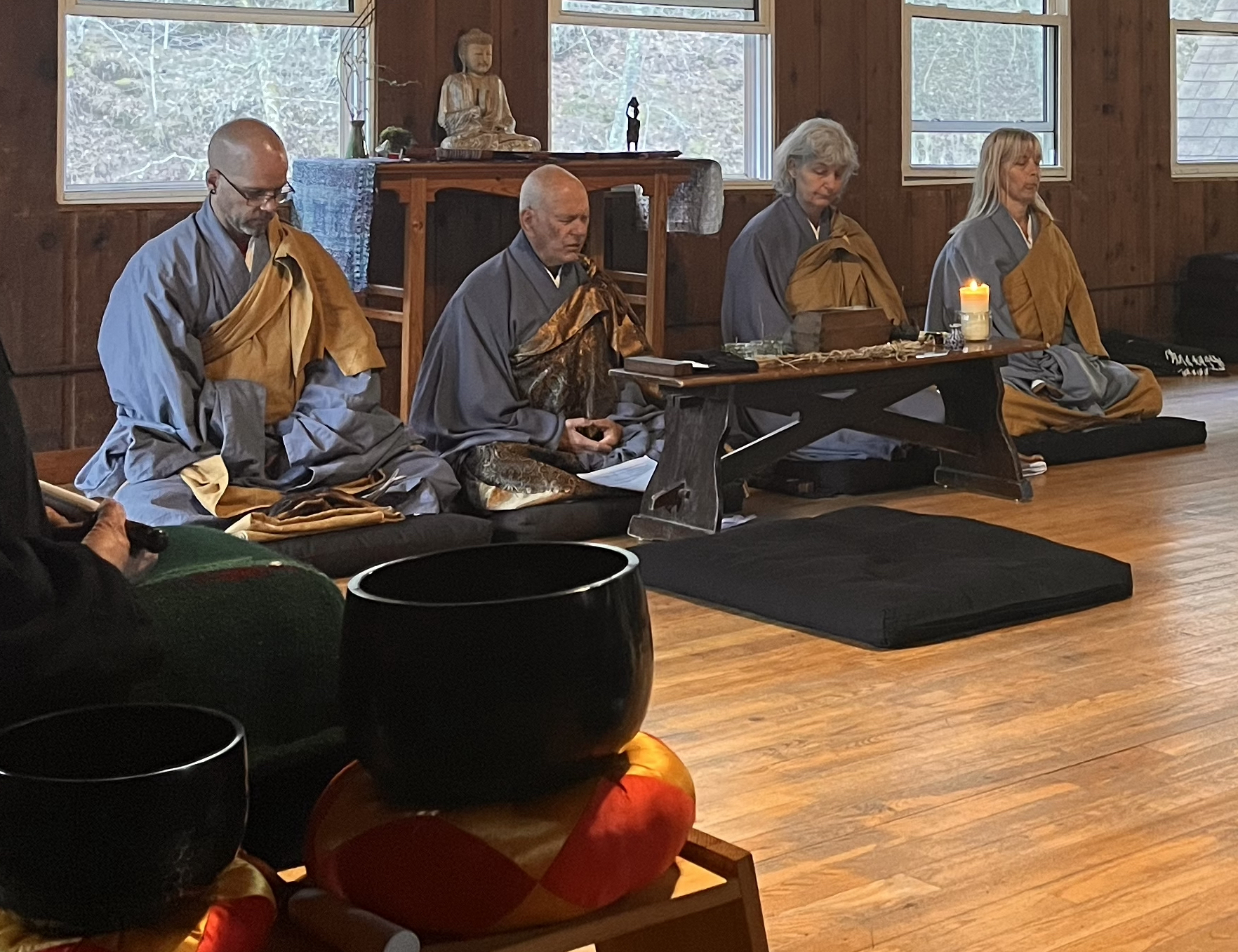Zen Practice
Zen Practice
Zen is a Buddhist tradition for spiritual and human development that focuses its practice on our daily lives, our careers, our relationships, roles, and tasks, our play. Zen challenges the way we see ourselves and the world, guiding us into deep exploration, a path of discovery, and intimate states of awareness. The essential practice at every stage of Zen development is zazen or meditation. People come to Dharma River Zen Community for expert guidance on how to develop a powerful spirituality that sustains us in good and difficult times, guides us toward what is meaningful, and nurtures concentration, inner peace, emotional strength, a compassionate character, and discerning wisdom.
Creations are numberless – I vow to free them.
Delusions are inexhaustible – I vow to transform them.
Reality is boundless – I vow to perceive it.
The enlightened way is unsurpassable – I vow to embody it.
Delusions are inexhaustible – I vow to transform them.
Reality is boundless – I vow to perceive it.
The enlightened way is unsurpassable – I vow to embody it.
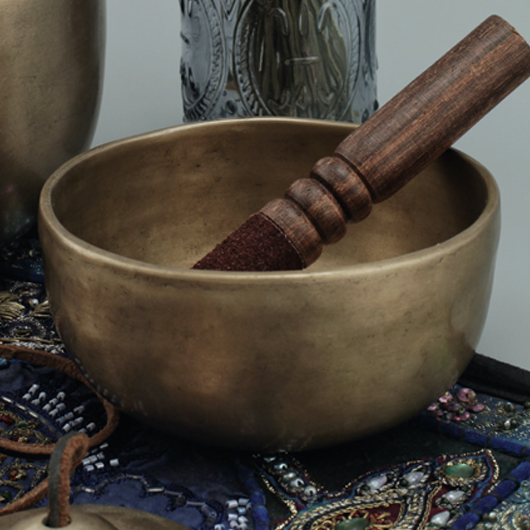
Why Zen?
What makes Zen unique is how it grounds the most complex questions and dilemmas of human being into practical and profound encounters with daily life. The Zen training hall is not separate from our daily life, our way of being in the world with ourselves, our intimate circle, our work, and communities. Zen is a way of living characterized by authenticity, practicality, compassion, flexibility, spontaneity, and wisdom. A wonderful aspect is its embrace of humor and humility in the face of the limits of what we can know and control in life…if you can’t laugh at the universe at some level all is lost!
Our Lineage
At Dharma River Zen Community, we walk a path of maintaining and manifesting the forms and standards of the Zen Garland order as envisioned by our teachers, Roshi Paul Genki Kahn and Roshi Monika Genmitsu Kahn. To understand their journey, it is necessary to see their relationship with Hakuyū Taizan Maezumi (前角 博雄, February 24, 1931—May 15, 1995), who was a Japanese Zen roshi and lineage holder in the Soto, Rinzai and Harada-Yasutani lineages—an unusual background for any Zen teacher. He combined the Rinzai use of koans and the Soto emphasis on shikantaza in his teachings, influenced by his years studying under Haku’un Yasutani in the Harada-Yasutani school. Through his decades of teaching he founded or co-founded several institutions and practice centers, among them being the Zen Center of Los Angeles, Upaya Zen Center, White Plum Asanga, Yokoji Zen Mountain Center and the Zen Mountain Monastery.
Getting Started with Zen Practice
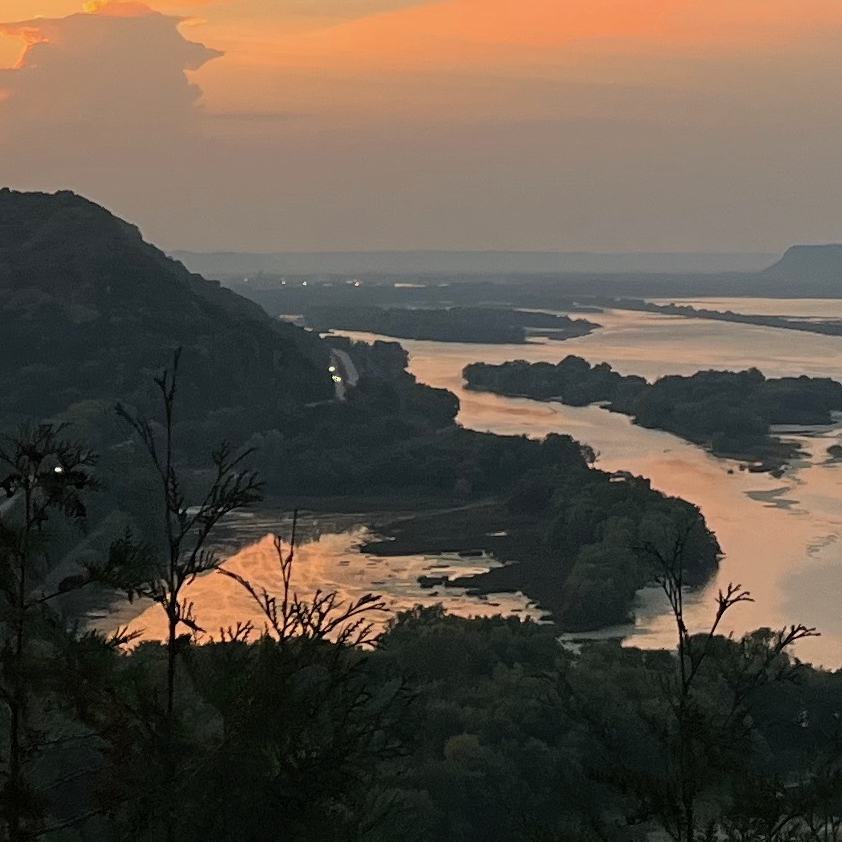
Dharma River Zen Community offers opportunities to access Zen Practice at a variety of levels of engagement. Folks are always welcome to come by our morning Zen Meditation on Tuesdays or our Sunday Zen Service, Zen Meditation and community talk. We do recommend you do an orientation to our way of practice. Contact Kisho at kishoroshi@zengarland.org to set up a time to for an orientation.
If you are looking to deepen your Zen practice, to explore meditation and connect more intimately in and with your life, to study and work toward taking Zen Lay Vows or Priest Vows…regardless of the level of engagement you are looking for, there is a pathway here waiting for you to take the first step and support that will compassionately guide you along the way.
Eight Core Practices
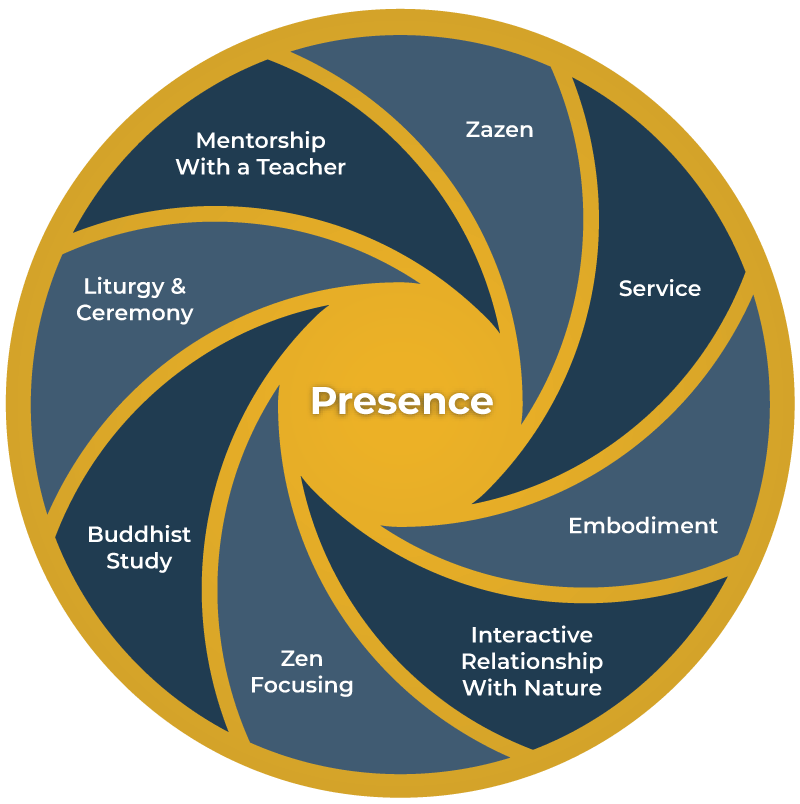
All Zen Garland Order practices are meant to awaken practitioners to the multiple perspectives of reality, “boundlessness” (sunyata), and to guide them to manifest that realization with authenticity and integrity in their personal lives.
“Seeing into the nature of things” (kensho”) reveals the identity and shared relationships of all creation, including our seemingly individual selves.
